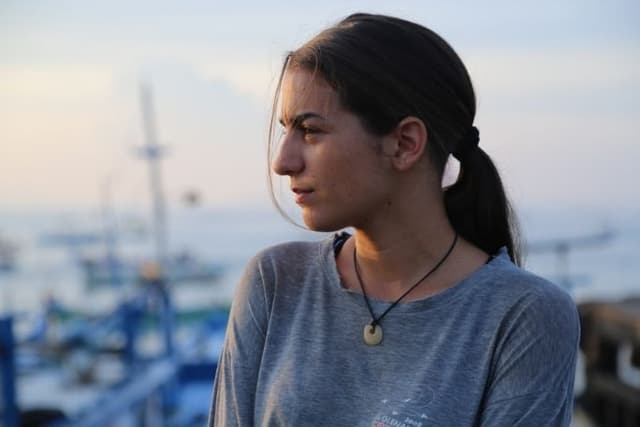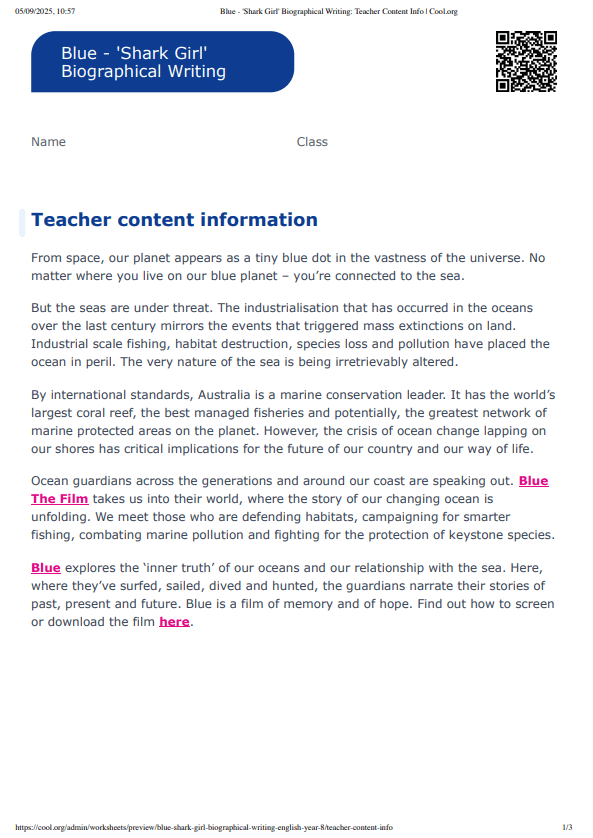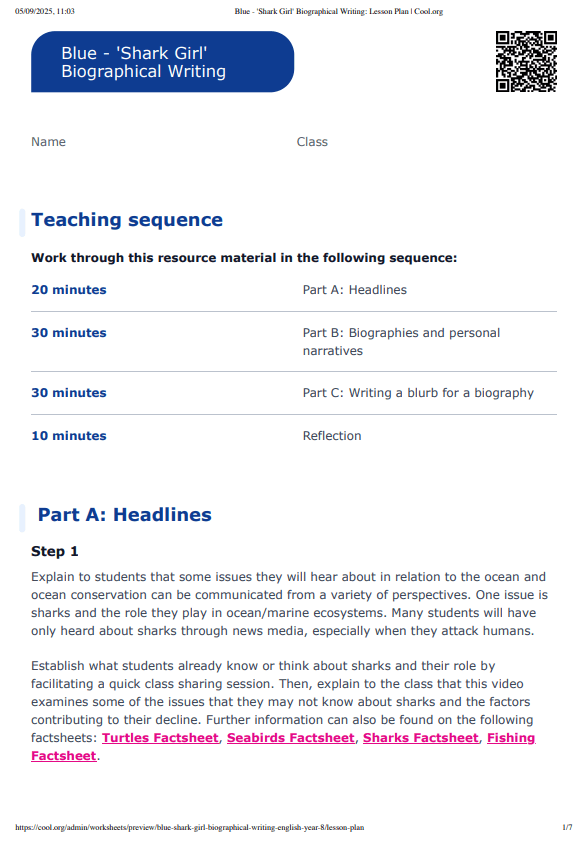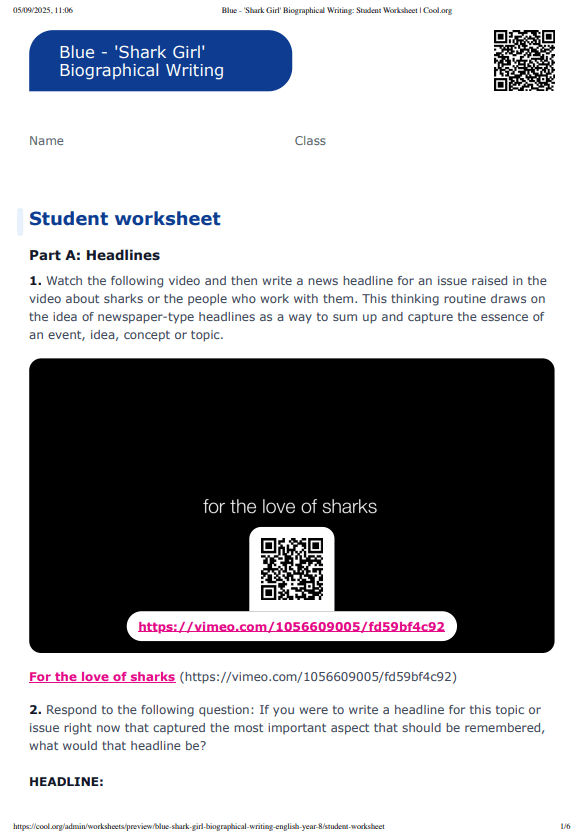
Blue - 'Shark Girl' Biographical Writing
Lesson7 of 10 in this unit
Year 7 - 8EnglishCreative writingLearning through filmEnvironmentalBiodiversityConservationOceansWater
Summary
Lesson Guides and Printables
Teacher Content Info

Lesson Plan

Student Worksheet
